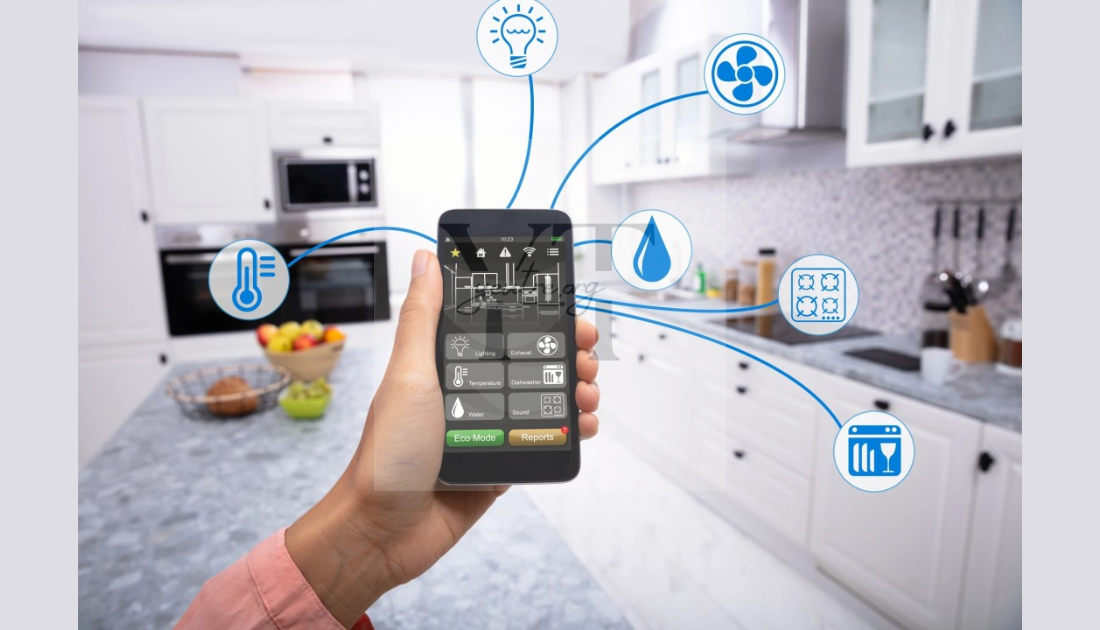In today’s rapidly evolving technological landscape, home appliances have undergone significant transformations. Among the most notable advancements are Smart Motor and Control Systems, which have redefined the way we interact with everyday devices. These cutting-edge technologies not only enhance the functionality of appliances but also contribute to energy efficiency and user convenience. This article delves into the world of high-tech home appliances, exploring how Smart Motor and Control Systems are shaping the future of household devices.
The Rise of Smart Home Appliances
Smart home appliances have become increasingly popular as consumers seek greater convenience and efficiency in their daily lives. These devices are equipped with advanced features that allow for remote control, automation, and integration with other smart devices. The integration of Smart Motor and Control Systems is a pivotal aspect of this evolution, enabling appliances to perform tasks with greater precision and adaptability.
Understanding Smart Motor Technology
Smart Motor technology is at the heart of many modern home appliances. Unlike traditional motors, Smart Motors are designed to be more energy-efficient, quieter, and more responsive. They can adjust their performance based on real-time data, ensuring optimal operation under varying conditions. For instance, in washing machines, Smart Motors can detect the load size and adjust the spin speed accordingly, leading to better cleaning results and reduced energy consumption.
Enhanced Control Systems for Precision
Control systems in home appliances have also seen significant advancements. Smart Control Systems utilize sophisticated algorithms and sensors to monitor and regulate appliance functions. This level of control allows for greater precision in operations such as temperature regulation in refrigerators or cooking settings in ovens. By constantly analyzing data, these systems can make instant adjustments to maintain optimal performance, thereby enhancing the overall user experience.
Benefits of Smart Motor and Control Systems
The integration of Smart Motor and Control Systems into home appliances offers numerous benefits:
- Energy Efficiency: Smart Motors consume less power by adapting their performance to the task at hand. Control Systems ensure that appliances operate only when necessary, further reducing energy usage.
- Enhanced Performance: With precise control over motor functions, appliances can perform tasks more effectively. For example, smart vacuum cleaners can adjust their suction power based on the type of flooring, ensuring thorough cleaning without wasting energy.
- User Convenience: Smart Control Systems often come with user-friendly interfaces and connectivity options. Users can control appliances remotely via smartphone apps, set schedules, and receive notifications about appliance status.
- Longevity and Maintenance: By optimizing performance and reducing strain on components, Smart Motors and Control Systems can extend the lifespan of appliances. Additionally, many systems can diagnose issues early, facilitating timely maintenance and repairs.
Applications in Various Home Appliances
Smart Motor and Control Systems are being integrated into a wide range of home appliances, each benefiting uniquely from these technologies:
- Refrigerators: Smart Motors help maintain consistent temperatures by adjusting cooling cycles based on usage patterns. Control Systems can manage humidity levels and alert users when door seals are compromised.
- Washing Machines: These systems optimize water usage and spin cycles, ensuring clothes are cleaned efficiently while conserving resources.
- Dishwashers: Smart Control Systems adjust wash cycles based on the load size and soil levels, ensuring spotless dishes with minimal water and energy usage.
- Air Conditioners: Smart Motors regulate airflow and temperature precisely, maintaining comfort while minimizing energy consumption.
- Vacuum Cleaners: Adjustable suction power and intelligent navigation are possible thanks to Smart Motors and advanced Control Systems, making cleaning more effective and efficient.
The Future of Smart Home Appliances
As technology continues to advance, the role of Smart Motor and Control Systems in home appliances is set to expand further. Future developments may include even more sophisticated AI-driven control algorithms, greater integration with other smart home devices, and enhanced adaptability to individual user preferences. Additionally, advancements in materials and motor design could lead to quieter and more durable appliances.
Overcoming Challenges
While the benefits of Smart Motor and Control Systems are clear, there are challenges to their widespread adoption. These include higher initial costs, the need for reliable internet connectivity, and concerns about data privacy. Manufacturers are addressing these issues by developing more affordable solutions, ensuring seamless connectivity options, and implementing robust security measures to protect user data.
Sustainability and Smart Technologies
Sustainability is another critical area where Smart Motor and Control Systems make a significant impact. By optimizing energy usage and reducing waste, these technologies contribute to more sustainable living practices. For example, smart thermostats can learn a household’s schedule and adjust heating and cooling accordingly, minimizing energy consumption without compromising comfort.
Integration with Smart Home Ecosystems
Smart Motor and Control Systems are integral to the broader smart home ecosystem. Integration with platforms like Amazon Alexa, Google Home, and Apple HomeKit allows for seamless control of multiple devices through voice commands or centralized applications. This interconnectedness enhances the overall functionality and user experience, making smart home management more intuitive and efficient.
Security Features in Smart Appliances
With the increasing connectivity of home appliances, security becomes paramount. Smart Motor and Control Systems incorporate advanced security features to protect against unauthorized access and cyber threats. Encryption protocols, secure authentication methods, and regular software updates are essential components that ensure the safety and integrity of smart appliances.
User Experience and Interface Design
The success of Smart Motor and Control Systems also depends on the user experience and interface design. Intuitive interfaces that are easy to navigate enhance user satisfaction and encourage the adoption of smart technologies. Manufacturers are focusing on designing user-friendly controls, whether through touchscreens on appliances or mobile apps that offer comprehensive control and monitoring capabilities.
Cost-Benefit Analysis
While smart appliances with advanced motor and control systems may come with a higher upfront cost, the long-term benefits often outweigh the initial investment. Energy savings, reduced maintenance costs, and enhanced appliance longevity contribute to significant cost savings over time. Additionally, the convenience and improved performance offered by smart technologies add intangible value that enhances the overall quality of life.
Conclusion
Smart Motor and Control Systems represent a significant leap forward in the realm of home appliances. By offering enhanced energy efficiency, precision, and user convenience, these technologies are transforming the way we interact with household devices. As smart home ecosystems continue to evolve, the integration of advanced motor and control systems will play a crucial role in shaping the future of home living. Embracing these innovations not only improves the functionality and sustainability of home appliances but also contributes to a more connected and efficient lifestyle.
Embracing the Smart Home Revolution
Transitioning to smart home appliances equipped with Smart Motor and Control Systems is a step towards embracing modern living. As technology continues to advance, these systems will become even more integral to our daily lives, offering unparalleled convenience and efficiency. Whether it’s reducing energy consumption, enhancing performance, or providing seamless control, Smart Motor and Control Systems are at the forefront of the smart home revolution.




